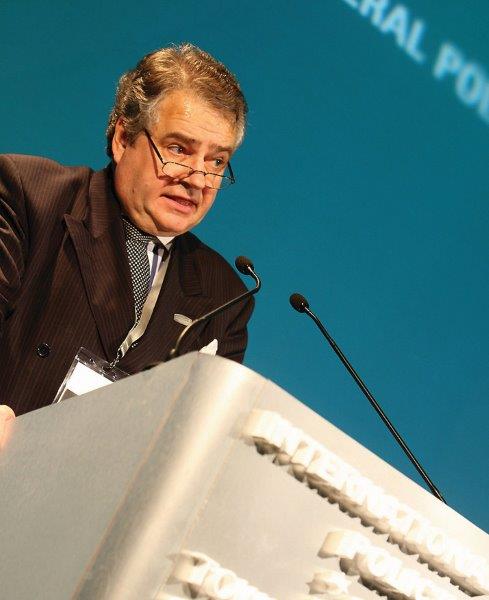You’ve heard it before, we all know it’s happening: the Uniting Church is in steady decline. Despite the good intentions of many who try to encourage us to change our ways so we can thrive again, the truth is the church is currently heading towards a gloomy situation.
Dr Keith Suter, futurist, well respected Australian social commentator and Uniting Church member, has independently researched and completed his third PhD: The Future of the Uniting Church in Australia, as a labour of love through the University of Sydney. Using the ‘scenario planning’ method, which Revive has previously featured in relation to work of the Uniting Church in WA’s Strategy and Mission Planning Commission, Keith has come up with four ‘possible’ futures the Uniting Church in Australia could head down.
To clarify, a possible future is different to a predicted or preferred future, in that it may not be a scenario which we all want and it’s not the only option available to us. Instead, Keith has put forward a number of realistic scenarios that could or could not play out depending on how we manage the organisation from here on.
 Many people in Australia today see the Uniting Church as a bunch of dwindling congregations with not much sway in the larger scheme of things. Keith, however, said that this simply isn’t true. The Uniting Church is one of the most asset rich organisations in the country and its future needs to be taken seriously.
Many people in Australia today see the Uniting Church as a bunch of dwindling congregations with not much sway in the larger scheme of things. Keith, however, said that this simply isn’t true. The Uniting Church is one of the most asset rich organisations in the country and its future needs to be taken seriously.
“If all the assets in the Uniting Church were combined as one company,” Keith said, “that one company would be larger than 90% of companies on the Australian Stock Exchange.”
“The Uniting Church is an immense financial institution.”
Unfortunately, he also recognises that many of its members are aging, tired and just want the Uniting Church to be there for them in the end stages of their life.
“A lot of congregations are old people who just want to be reassured that the Uniting Church will be there to bury them,” he said. “They’re not worried what will happen after they’re dead.”
With these two competing points in mind, a considered future is necessary.
So what are these possible futures?
1. Word and deed
In this first scenario, the Uniting Church would be consolidated into a small amount of large regional centres which operate seven days a week providing spiritual care, welfare and worship catered to a range of different lifestyles. This church would know the importance of Christian education and training, ensuring staff – who know and endorse the Uniting Church’s ethos – regularly take part in refresher courses. This church would also be heavily involved in social justice and advocacy and teaches its staff how to be comfortable in sharing their faith.
Keith said that, in this church, “each parish has a team ministry, with an ordained senior minister/chief executive officer (CEO) holding together the central vision of word and deed.”
“A ‘word and deed’ Uniting Church is an Australian church that holds together the Christian gospel and the delivery of welfare services. This Uniting Church has a mission perspective – it operates for the chief purpose of people who are not in it.”
2. Secular welfare
In this scenario, the Uniting Church would no longer have congregations and would focus all of its energy on providing a national network of welfare and community services – possibly through the already established UnitingCare.
While there may be little interest in Christian spirituality in this church, there may be interest in other forms of spirituality and there would be a high level of awareness in secular humanitarian work.
As this church would have no ties to congregations, Keith said that it would be freer to operate within a secular society.
“It will not be weighed down with concerns about congregational matters,” he said. “It will be able to tender for government contracts without the risk of theological complications.”
A secular welfare Uniting Church “recognises that it is now operating in a secular society where people are more interested in the quality of the services rather than the motivation behind their delivery.”
3. Early Church
In contrast to the previous scenario, this scenario would see the Uniting Church move away from government funding altogether, away from its welfare services and away from its institutional structure. This church would have fewer assets and resources, possibly becoming a network of ‘house’ churches or other creative initiatives, with a similar mission to that of the early church of before the fourth century.
Keith said that the Uniting Church is currently in a situation similar to that of the early centuries of the Christian era, of competing faiths and an extensive mission field.
“Jesus spoke of the ‘Kingdom of God’ but instead all we have is a ‘church’,” he said.
This church would need a whole new leadership for a ‘back-to-basics’ style church in a new world.
“The Uniting Church in this scenario is focussed on the kingdom of God and what the phrase means in today’s society. It is fluid, flexible open and not fixed on a denomination or creeds or liturgy.”
4. Recessional
In this final possible scenario, the Uniting Church would be wound up altogether, creating a valuable exit strategy. Without an exit strategy, the church will simply fade away, but with one its work can carry on in new forms. Assets and resources can be used for good under a different umbrella, as decided by the Uniting Church.
“In this scenario the welfare services are still funded by government, but government sees no special reason why the Uniting Church itself should be trusted to run them because the Uniting Church is fading away. The second driver is low Christian spirituality. In this scenario, the end of the dominant Constantinian paradigm means Australians decide that – in an increasingly ‘consumerist’ society – the Uniting Church has nothing much to offer them.”
So what next?
The challenge to us now, is what will the church do with this research? To do nothing could be devastating.
“At the moment when I look at the Uniting Church I see it gradually fading away without an exit strategy,” he said. “An exit strategy is when you say, ‘yes we are dying, what can we now do?’” Keith said.
David Kriel, strategy and mission planner for the Uniting Church in WA, believes that Keith’s work is invaluable for the church.
“He’s provided the church with a tool. Local, synods, presbyteries – all bodies can use it,” David said. “It’s coming from a person who’s the top of his trade. He’s really grounded in the church and he’s got a heart for the Uniting Church.”
“How we’re going to use it is up to us. There’s no right or wrong, good or bad way. Let’s just use it and talk about it,” David said.
In the final chapter of his dissertation, Keith writes about the importance of having this conversation in the Uniting Church and sets out some talking points for any community within it. He also reminds us that the decline in membership of Uniting Church in Australia is not a symptom of a decline in Christianity around the world. In fact, global Christianity is actually on the rise. He even offers an option of an exit plan to gift some of our resources to this growing overseas movement.
Having been a member of the Uniting Church since its union in 1977, Keith himself found researching this topic a difficult task.
“I was involved [in the Uniting Church] right at the very beginning,” he said. “If someone had said to me 40 years later that I’d be writing in these terms I would say, ‘no, that’s not possible’. I’m very much like many Uniting Church ministers who, when they joined, thought they joined a flourishing organisation.”
Despite the difficult topic, Keith said he was surprised not to have received any negative feedback from members who hold this organisation so close to their hearts.
“Deep down in their bones everyone realises there’s something wrong,” he said.
Inspired?
Dr Keith Suter has made his PhD, The Future of the Uniting Church in Australia, and a summary of it, available free of charge to anyone interested in reading it. To get a copy, contact him through his website at www.churchfutures.com.au or at http://global-directions.com. He will also be available to book as a speaker to help get this conversation going.
Heather Dowling
